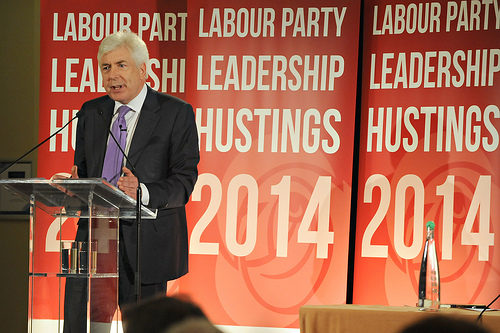Address at Galway Labour Leadership Hustings
June 16th 2014
One of my earliest memories as a child was watching the television coverage of the 1969 general election with my Dad. I was ten. I remember sharing in the disappointment of that election setback, but picking up from him a remarkable sense of optimism and commitment to changing things - a commitment that so many people in this party have -and that has stayed with me ever since that childhood experience.
It was from my father that I got my Labour values - the ideals and the principles that shaped my life, and my perspective on the world. Like his father before him, my Dad was a railway worker, a trade unionist, and a Labour man.
In common with many people of my generation, I was the first of my family to go to university, and it was an opportunity I grasped with huge enthusiasm and a sense of great promise for the future. I studied sociology in TCD, became a student activist, a campaigner, and a bit of a thorn in the side of the establishment. In those years we campaigned not just on student issues but also for contraceptive rights, civil liberties, community action, and democratic rights in Eastern Europe.
Later I spent ten years as a producer in RTE, and became quickly immersed in trade union activity – the old FWUI, and was very much involved then in the early years of SIPTU.
In 1994 I left RTE and started practising as a barrister. I learned a huge amount working as a lawyer. Negotiating skills. An ability to be strong and decisive. To advise and counsel. To know where to draw the line. When to fight and when to settle an issue. My principal area of work was in labour and employment law, fighting dismissal cases, discrimination and equality, injuries in the workplace.
This was fulfilling work, but I still wanted to make a contribution to society through public service. I think that’s an urge and a motivation that everyone in this room shares. People don’t join Labour for personal advancement. We join to make our country a better place. That’s what I want to do – in whatever capacity I can, and drawing on whatever skills and experiences I have.
I joined the party in 1998 in Dublin South. I’ve been a public representative for ten years, elected to Dáil Éireann for the first time in 2011. Before I was appointed as a Minister of State I was Chair of the Finance Committee, which gave me great insight into the Eurozone crisis at a particularly eventful time in 2011 and 2012.
As a junior Minister in the Department of Health I delivered on Labour’s commitment to legislate for the X case, through detailed negotiations with Fine Gael on the text, and then piloting the new law through the Oireachtas. I secured government agreement on the alcohol strategy - the first time ever in this country that alcohol misuse is being addressed in public health legislation. And I have been advancing our long-standing policy of universal access to primary care - that legislation will be at Committee Stage in the Dail this Thursday. Against what many people said were impossible odds, I recently negotiated a framework agreement with the IMO that will facilitate progress on this critical public health measure, something that we have been arguing for years, and that we are now making a reality. It’s the kind of policy area that you need to work through, negotiate, push forward, and that’s what I have been doing.
So – why am I going for the position of leader of the Labour Party?
Our party currently faces many challenges - in terms of our organisation, our message, and our place in Irish society. Our response to these challenges cannot be simply “more of the same”. We need change, change that starts on July 4th when a new Leader takes up office. The question for our party now is whether to pass the baton to the next most senior person in the current leadership, or to shift gear altogether and choose someone who is relatively fresh, who will present a new and different image to the electorate, and who has the energy and commitment for a project of renewal.
My ambition is to tackle three major tasks for the party in the immediate months ahead: how will we seek to bridge the disconnect between our members and the party in government; how can we ensure that our party, especially in areas where we have no elected representatives, retains a local presence and relevance; and how every member of our party can meaningfully contribute to policy direction, our next election platform, and the longer term renewal of our vision for a social democratic Ireland.
There have been serious problems, especially lately, in how business is being done in government. For a coalition government to work successfully there must be absolute respect between the partners. There must be parity of esteem, and I intend to ensure that there is. That parity of esteem must permeate personal relationships, all decision making processes, flows of information, the culture of government work, and the agreed programme. In short, the relationship between the parties in government must be robust and it must be respectful. As leader I will make that happen.
As far as the next budget is concerned, there can be no question of an adjustment of the order of €2 billion. We have an agreed target of reducing the deficit below 3% in 2015 and I believe we can achieve this. But there can be no more significant cuts in public spending, or any more taxes or charges affecting people on average incomes. If you elect me as Leader I will ensure that this will be Labour’s position for the remainder of the term of this Government.
The government is right to look at budgetary options for relieving the pressure on our people. Tax relief is one option that has been mentioned. But the protection of public services must also be a high priority. As much as I would like to see tax relief I do not believe it should be at the expense of essential public services.
Le coicis anois, taimse ag taisteal ar fud na tire ag ple le baill an Phairti, agus ta se lan soileir go bhfuil dearcadh thar a bheith diultach sa Phairti, maidir le ceisteanna rialtais agus rannphairtiocht sa Chomhrialtais. Ta a lan caint faoi ualach, faoi dualgas, faoi freagarthacht. Ni haon ionadh e sin, tar eis taithi na mblianta seo caite, tar eis na gnaiomacha ata curtha i bhfeidhm ag an Rialtas. Ach ta taobh eile ann. Ta se rithabhachtach nach deintear dearmad air go bhfuil deiseanna again freisin; deiseanna nach dtugtar duinn go ro mhinic – deis dul i mbun athchoiriu mar shampla – athchoiriu i bpolatiocht na tire, athchoiriu a bhaineann le cearta Deanna ar mhuintire, athchoiriu a bhaineann le seirbhiseacha bunusacha cosuil leis an gcoras leighis, rud go bhfuil suim faoi leith agamsa ann.
Cibe iarrathoir a thoghfar ar an 4u la de Iuil, no sa treimhse roimhe sin, beidh air no uirthi dul i ngleic le dushlain tromchuiseacha, le fabhbanna faoi leith, le buncheisteanna tabhachtacha. Buncheisteanna a bhaineann le todhchai an Phairti, le teachtaireacht an Phairti, le eagru agus eagraiocht an Phairti.
Se an rogha ata ag gach uile ball den Phairti, ag gach uile duine sa seomra seo, cinnireacht an Phairti a bhronnadh ar an duine is sinsire sa chinnireact ata ann cheanna fein, no duine a thoghadh go bhfuil an fuinneamh aige dul i ngleic le tionscnamh athnuathchain a mhairfidh cuig bhliain ar a laghad. Mar a duirt Eamon agus se ag eiri as a phost mar ceannaire, ta ga le guth nua ag an miocrafoin. Ta se ar mo chumas, agus beidh me an sasta an ghuth nua sin a chur ar fail ma thoghann sibh mise mar ceanaire ar an bPairti ag tus na miosa seo chugainn.
Go raibh mile maith agaibh.


Leave a Comment